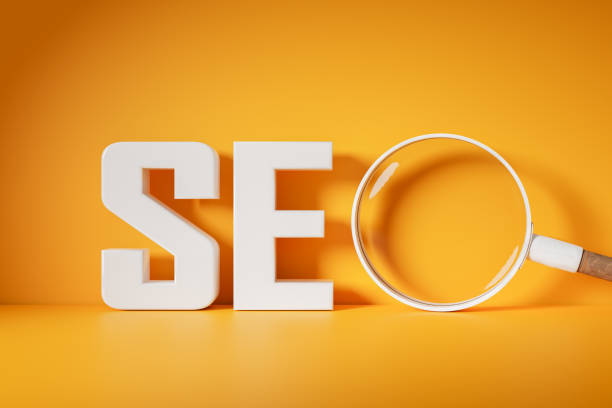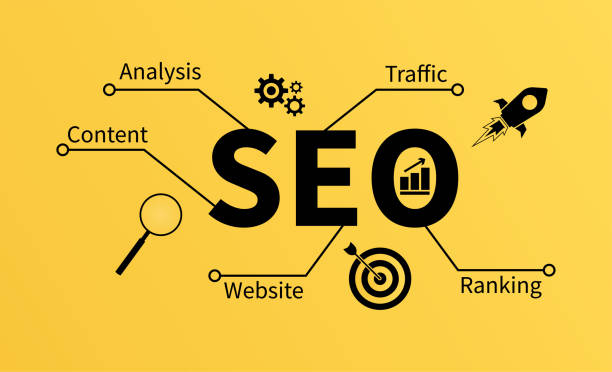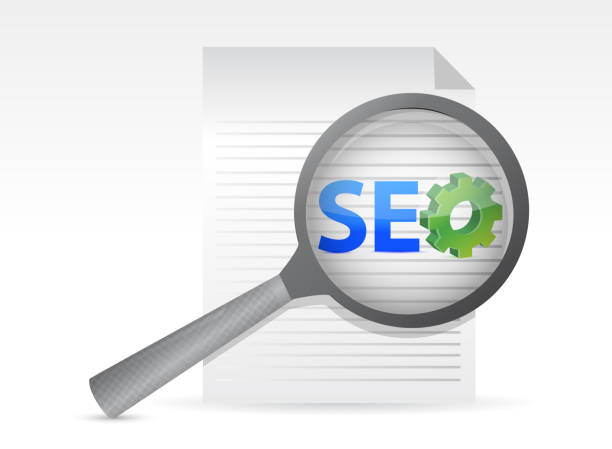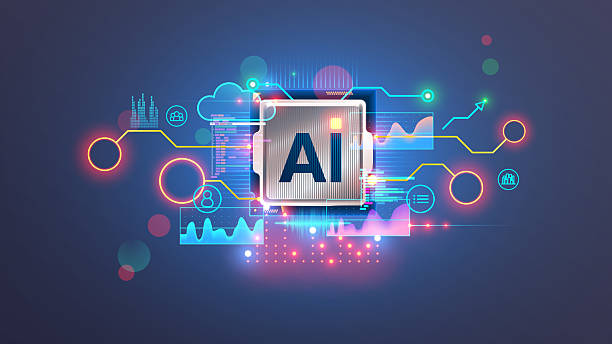What is SEO and why is it important?

What is SEO and why is it important?
#SEO (Search Engine Optimization) is a process for improving the visibility of a website or web page in the organic (non-paid) search results of search engines like Google.
The main goal of #SEO is to increase website traffic by improving rankings in search engine results pages (SERPs).
When users search for a term in Google, search engines display results based on the most relevant and authoritative web pages.
#SEO helps your website rank higher in these results.
The importance of #SEO in today’s digital world is very high.
Most users use search engines to find the information, products, or services they need.
If your website doesn’t appear on the first pages of relevant search results, you’ll lose many potential customers.
SEO not only increases your website traffic, but it can also strengthen your brand’s credibility.
Ranking high in search results shows users that your website is a reliable and trustworthy source.
In addition, #SEO is a cost-effective marketing strategy.
Compared to paid advertising like pay-per-click (PPC), #SEO can be less expensive in the long run.
By optimizing your website for search engines, you can consistently attract organic traffic and reduce your reliance on paid advertising.
Optimizing your site for search engines is one of the most important aspects of online marketing.
#SEO has a huge impact on your business’s success.
Does your current website build the trust that potential customers should have in your business? If the answer is no, it’s time to have a professional and impactful corporate website with Rasaweb.
✅ Completely custom design tailored to your brand identity
✅ Increase lead generation and the credibility of your business in the eyes of customers⚡ Contact us for a free consultation!
Understanding the key concepts of SEO

Understanding the key concepts of SEO
To better understand SEO, you need to be familiar with some of its key concepts:
- Keywords are the words and phrases that users enter into search engines.
Choosing the right keywords that are relevant to your business is the foundation of #SEO.
Keyword research helps you understand what users are searching for. - On-Page SEO refers to optimizing elements within the website, such as content, title tags, meta descriptions, and URL structure.
The goal of on-page SEO is to ensure that your website is understandable and relevant to search engines. - Off-Page SEO includes actions that are taken outside of your website to increase the website’s credibility and ranking.
The most important aspect of off-page SEO is link building. - Link Building is the process of acquiring links from other websites to your website.
Links act as a vote of confidence from other websites to your website and show search engines that your website is authoritative and trustworthy. - User Experience (UX) includes all aspects of a user’s interaction with your website.
A good user experience keeps users on your website longer, encourages them to visit more pages, and increases the likelihood of them becoming customers.
Search engines value user experience and rank websites with better user experiences higher.
Understanding these key concepts will help you develop and implement a successful #SEO strategy.
Remember that #SEO is an ongoing process that requires patience, effort, and updates.
Keyword research is a tool for success in SEO

Keyword research is a tool for success in SEO
Keyword Research is one of the most important steps in the SEO process.
Choosing the right keywords that are relevant to your business helps you attract targeted traffic to your website and increase your chances of converting visitors into customers.
Keyword research shows you what phrases users are using in search engines to find your products or services.
To do keyword research, you can use various tools like Ahrefs, Moz Keyword Explorer, Ubersuggest, and Google Keyword Planner.
These tools help you find search volume, competition, and related keywords.
You can also find the keywords your competitors are using by analyzing them in Google.
After collecting a list of keywords, you should prioritize them based on their relevance to your business, search volume, and competition.
Keywords with high search volume and low competition are the best options to target.
Also, keep in mind that long-tail keywords can attract very targeted traffic to your website.
These words are usually longer and more specific phrases that users use when searching more precisely.
Using the right keywords in content, title tags, meta descriptions, and other website elements helps search engines understand the topic of your website and rank it in relevant search results.
Remember that overuse of keywords (Keyword Stuffing) can have a negative impact on #SEO.
Try to use keywords naturally and fluently in your content.
| Keyword | Monthly Search Volume | Competition |
|---|---|---|
| #SiteSEO | 5000 | Medium |
| SEO Training | 3000 | High |
| Site Optimization | 4000 | Medium |
Internal SEO optimizing site structure and content

Internal SEO optimizing site structure and content
On-Page SEO includes all the actions that are done inside your website to improve your website’s ranking in search engines.
Optimizing website structure, content, title tags, meta descriptions and other internal elements are among the most important aspects of on-page SEO.
Your website structure should be logical, hierarchical, and user-friendly.
Users and search engines should be able to easily navigate your website and find the information they need.
Using a clear and concise URL structure, creating appropriate categories, and using visual navigation menus helps improve your website’s structure.
Content is king.
High-quality, relevant, valuable, and unique content is one of the most important ranking factors in search engines.
Your content should answer users’ questions, meet their needs, and provide them with useful information.
Also, your content should be updated regularly so search engines and users know that your website is active and dynamic.
Title Tags and Meta Descriptions are important elements that appear in search results.
Title tags should be concise, engaging, and include the main keywords.
Meta descriptions should provide a summary of the page’s content and encourage users to click on your link.
Optimizing these elements can help increase click-through rate (CTR) and improve your website’s ranking.
In addition, optimizing images, using H1-H6 tags to organize content, improving page loading speed, and using internal links are other important aspects of on-page SEO.
On-page SEO optimization is an ongoing process that requires continuous review, analysis, and improvement. By taking these actions, you can improve your site’s internal #SEO.
#SEO has a huge impact on website traffic.
Are you losing potential customers due to an unprofessional website? Rasaweb is your answer! With our specialized corporate website design services:
✅ Enhance the credibility and position of your business
✅ Experience attracting more targeted customers
⚡ Act now to receive a free consultation!
Off-page SEO building credibility and increasing ranking

Off-page SEO building credibility and increasing ranking
Off-Page SEO includes all actions that are taken outside of your website to increase the credibility and ranking of your website in search engines.
The most important aspect of off-page SEO is link building.
Link building is the process of acquiring links from other websites to your website.
Links act as a vote of confidence from other websites to your website and show search engines that your website is authoritative and trustworthy.
High-quality links from reputable and relevant websites have a greater impact on your website’s ranking.
To earn links, you can use various methods such as producing high-quality and valuable content, participating in interviews and events, writing guest posts on other websites, creating profiles on social networks and online directories, and interacting with influencers.
You can also identify the links your competitors have earned and try to get similar links.
In addition to link building, social media activity, branding, and online reputation management are also important aspects of off-page SEO.
Being active on social media and sharing your website’s content can help increase brand awareness and attract more traffic.
Also, managing your online reputation and responding to customer comments and criticisms can help improve your brand image and increase customer trust.
Keep in mind that #offpageSEO is a time-consuming and laborious process.
To earn high-quality links, you need to be patient and keep trying.
Also, avoid using unethical and spam methods to earn links, as these methods can harm your website’s ranking. By using #offpageSEO, you can improve your ranking in search engines.
#SEO is an important process for any website.
User experience and its impact on SEO

User experience and its impact on SEO
User Experience (UX) includes all aspects of a user’s interaction with your website.
A good user experience keeps users on your website longer, encourages them to visit more pages, and increases the likelihood of them becoming customers.
Search engines value user experience and rank websites with better user experiences higher.
Various factors affect user experience, including page loading speed, website design, navigation, usability, content, and interactivity.
Your website should load quickly, have a beautiful and user-friendly design, be easy to navigate, provide relevant and valuable content, and allow for interaction with users.
To improve user experience, you can use various tools such as Google Analytics and Hotjar.
These tools help you monitor user behavior on your website, identify your website’s strengths and weaknesses, and apply necessary improvements.
Optimizing user experience not only helps improve your website’s ranking in search engines, but can also lead to increased customer satisfaction, increased sales, and improved brand image.
Therefore, investing in user experience is a valuable investment for any business.
By improving user experience, you can upgrade your site’s #SEO.
#SEO is a practical science in today’s world.
Key tips for improving user experience
- Page loading speed Page loading speed is one of the most important factors affecting user experience.
Try to reduce the loading speed of your website pages as much as possible. - Responsive design Your website should be optimized for all devices (computer, tablet, and mobile).
- Easy navigation Users should be able to easily navigate your website and find the information they need.
- Valuable content Your content should be relevant, valuable, and unique.
- Interactivity Allow for interaction with users (such as comments, contact form, and social networks).
Technical SEO behind the scenes of an optimized site

Technical SEO behind the scenes of an optimized site
Technical SEO refers to optimizing the technical aspects of your website for search engines.
This includes ensuring that your website is accessible, crawlable, indexable, and understandable by search engines.
#TechnicalSEO plays an important role in your website’s ranking because if search engines cannot properly crawl and index your website, your content will not appear in search results.
Some important aspects of #TechnicalSEO include:
- URL structure Your URL structure should be clear, concise, and include relevant keywords.
- XML sitemap An XML sitemap helps search engines find and crawl all pages of your website.
- Robots.txt file The Robots.txt file tells search engines which pages of your website they should not crawl.
- Page loading speed Page loading speed is one of the most important ranking factors.
Try to reduce the loading speed of your website pages as much as possible. - Responsive design Your website should be optimized for all devices (computer, tablet, and mobile).
- Website security (HTTPS) It is essential to use the HTTPS protocol for your website security.
- Fix crawling errors Crawl Errors can prevent your website from being indexed by search engines.
Try to identify and fix these errors.
| Technical SEO Element | Description | Importance |
|---|---|---|
| XML Sitemap | A list of all site pages for search engines | High |
| Robots.txt file | Instructions for search engine crawlers | Medium |
| SSL Certificate (HTTPS) | Encrypting data and increasing site security | High |
#TechnicalSEO optimization is an ongoing process that requires continuous review, analysis, and improvement.
By taking these actions, you can ensure that your website is accessible and understandable to search engines and that your website’s ranking in search results will improve. With technical SEO, you can solve SEO problems on your site.
#TechnicalSEO is an important part of SEO.
Local SEO optimizing for regional searches

Local SEO optimizing for regional searches
Local SEO refers to optimizing your website and online presence for regional searches.
If your business provides services to local customers, local SEO is very important to you.
Local SEO helps you rank higher in local search results such as Google Maps and Google Local Pack and attract more customers. With #localSEO, you can introduce your business to people near you.
#SEO is an online marketing method.
Some key actions for local SEO include:
- Register your business on Google My Business Registering your business on Google My Business is free and allows you to display your business information (name, address, phone, opening hours, website, etc.) in Google Maps and Google Local Pack.
- Optimize your Google My Business profile Optimize your Google My Business profile with accurate, complete, and engaging information.
Use high-quality images, provide detailed descriptions of your business, and select appropriate categories. - Get customer reviews Ask your customers to post their reviews on Google My Business.
Positive customer reviews can help increase customer trust and improve your ranking in local search results. - Optimize your website for local keywords Optimize local keywords in your website content, title tags, meta descriptions, and other elements.
- Build local links Get links from local websites, online directories, and other local resources.
- Activity in local social networks Be active in local social networks and interact with local customers.
Local SEO helps you attract more customers from your area and boost your business.
By taking these actions, you can improve your online presence in your area and attract more customers.
#LocalSEO helps your business get seen.
#SEO is more important than you think.
Are you losing potential customers due to an unprofessional website? Rasaweb is your answer! With our specialized corporate website design services:
✅ Enhance the credibility and position of your business
✅ Experience attracting more targeted customers
⚡ Act now to receive a free consultation!
Analyzing and reviewing SEO results

Analyzing and reviewing SEO results
Analyzing and reviewing #SEO results is one of the most important steps in the #SEO process.
Without analyzing and reviewing the results, you can’t understand whether your #SEO strategy is effective or not and what actions you should take to improve it.
Analyzing and reviewing #SEO results helps you identify the strengths and weaknesses of your #SEO strategy and make better decisions for the future.
To analyze and review #SEO results, you can use various tools such as Google Analytics, Google Search Console, and other #SEO tools.
These tools help you get useful information about your website traffic, keyword ranking, links, user behavior, and other aspects of #SEO. You can analyze your site using the Google Search Console.
Some of the most important indicators that should be considered in analyzing and reviewing #SEO results include:
- Organic Traffic The amount of traffic that enters your website through search engines.
- Keyword Ranking Your website’s ranking for the desired keywords.
- Click-Through Rate (CTR) The percentage of users who click on your website link in search results after seeing it.
- Bounce Rate The percentage of users who leave your website after entering a page of your website without visiting other pages.
- Time on Site The amount of time users spend on your website.
- Conversion Rate The percentage of users who take a specific action on your website (such as buying a product, subscribing to a newsletter, etc.).
By analyzing and reviewing these indicators, you can understand which parts of your #SEO strategy work well and which parts need improvement.
Then, you can take steps to optimize your #SEO strategy and achieve better results.
#SEO is a time-consuming process, so you have to be patient.
#SEO means being seen.
The future of SEO and emerging technologies

The future of SEO and emerging technologies
The world of #SEO is constantly changing and evolving.
With the emergence of new technologies and changing search engine algorithms, #SEO strategies must also be updated to remain effective.
In this section, we will examine some of the emerging technologies and their impact on the future of #SEO.
Artificial Intelligence (AI) and Machine Learning Artificial intelligence and machine learning will play an important role in the future of #SEO.
Search engines use artificial intelligence to better understand content, identify high-quality content, and provide users with more relevant search results.
Therefore, producing high-quality content that is relevant to users’ needs will become more important than ever.
Voice Search With the increasing use of smart devices and voice assistants such as Siri, Google Assistant, and Alexa, voice search has become a growing trend.
To optimize for voice search, you need to target long-tail keywords and answer users’ questions directly and concisely.
Mobile-First Indexing Google has officially activated mobile-first indexing since 2019.
This means that Google considers the mobile version of the website for indexing and ranking websites.
Therefore, ensuring that your website is optimized for mobile devices is very important.
User Experience (UX) As mentioned earlier, user experience is one of the most important ranking factors.
With the advancement of technology, users’ expectations of user experience are also increasing.
Therefore, improving page loading speed, responsive design, easy navigation, and valuable content will become more important than ever.
Considering these emerging technologies, #SEOs must constantly update their knowledge and align their #SEO strategies with the changes in the digital world in order to remain competitive.
#SEO has a very vast world.
Frequently Asked Questions
| Question | Answer |
|---|---|
| What is SEO? | SEO, or Search Engine Optimization, is the process of increasing the quality and quantity of website traffic by improving the site’s ranking in the natural (organic) search results of search engines like Google. |
| What are the main types of SEO? | SEO is divided into three main categories: On-Page SEO, Off-Page SEO, and Technical SEO. |
| What does On-Page SEO include? | On-Page SEO includes optimizing elements within the website, such as keywords, title tags, meta descriptions, content, URL structure, images, and internal links. |
| What is Off-Page SEO? | Off-Page SEO refers to activities outside of the website that help improve its ranking, such as backlink building, social media marketing, and brand mentions. |
| What is Technical SEO? | Technical SEO deals with optimizing the technical aspects of the website to help search engines crawl and index it better. This includes site speed, mobile-friendliness, site structure, sitemaps, and the Robots.txt file. |
| What role do Keywords play in SEO? | Keywords are the phrases that users enter into search engines. Correct and targeted use of relevant keywords in content and site elements helps search engines understand the topic of your page and display it in relevant searches. |
| What is a Backlink and why is it important? | A backlink or incoming link is a link from one website to another. Backlinks act as a “vote of confidence” from other sites for search engines and play an important role in the site’s credibility and ranking increase, especially if they are from reputable sites. |
| What effect does quality content have on SEO? | Quality, relevant, comprehensive, and unique content not only attracts and retains users, but also shows search engines that your page is valuable. This helps improve ranking, reduce bounce rate, and increase the time a user spends on the site. |
| Why is site loading speed important for SEO? | Site loading speed is an important ranking factor for Google. Faster sites offer a better user experience, have a lower bounce rate, and are preferred by search engines. |
| Is SEO a one-time process? | No, SEO is an ongoing and long-term process. Search engine algorithms are constantly changing, competition is increasing, and site content also needs to be updated. Therefore, SEO requires continuous monitoring, analysis, and optimization. |
And other services of Rasa Web Advertising Agency in the field of advertising
Intelligent Social Media: Transform click-through rates with engaging UI design.
Intelligent SEO: An effective tool for managing campaigns with the help of Google Ads management.
Intelligent Google Ads: Transform campaign management with a content strategy focused on SEO.
Intelligent Direct Marketing: Designed for businesses looking to grow online through engaging UI design.
Intelligent Advertising Campaign: A combination of creativity and technology to attract customers through intelligent data analysis.
And more than hundreds of other services in the field of internet advertising, advertising consulting, and organizational solutions
Internet Advertising | Advertising Strategy | Reportage Ad
Resources
SEO training in 15 minutes
,What is SEO and why is it important?
,SEO training
,What is SEO and what is its application?
? Transform your business in the digital world with Rasaweb Afarin! By providing comprehensive digital marketing services including corporate website design, SEO and social media management, we pave the way for your online success. Shine with us and reach the peaks of your business.
📍 Tehran, Mirdamad Street, next to the Central Bank, South Kazerun Alley, Ramin Alley, No. 6




